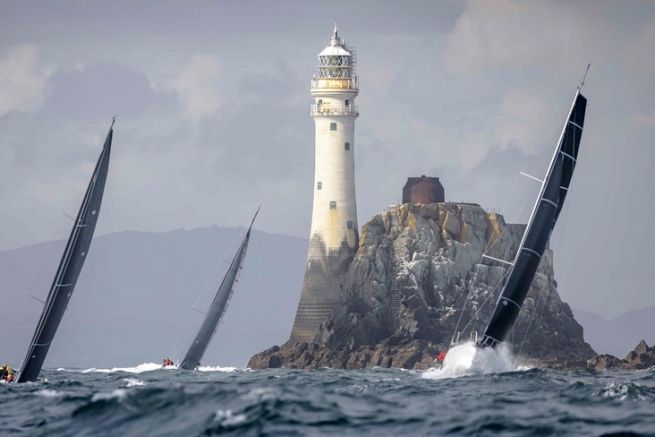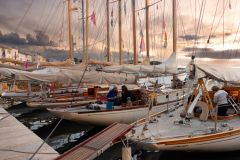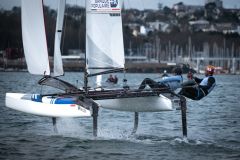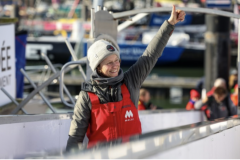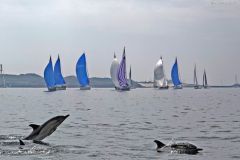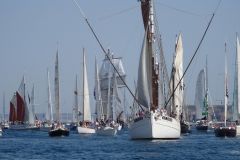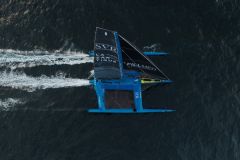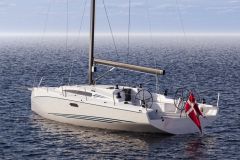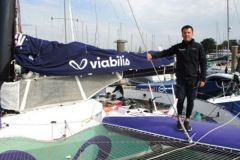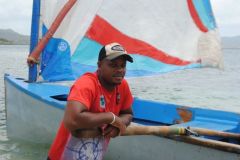Beginning of the 20th century, England. It took the spirit of a British sailor to imagine a race that would happily sail along the southern coast of the treacherous Albion, from the Isle of Wight to Plymouth around Fastnet Rock.
Fruit of the meeting between a magazine publisher and a writer
It was a race of at least 600 miles that would enable its creator, Weston Martyr, an English sailor and writer, to compete with the currents, tides and gales of these torn coasts of the English South. He created the Fastnet Race one evening in 1924 over a drink shared with Evelyn George Martin, Lieutenant Commander and editor of the nautical magazine "Yachting World".
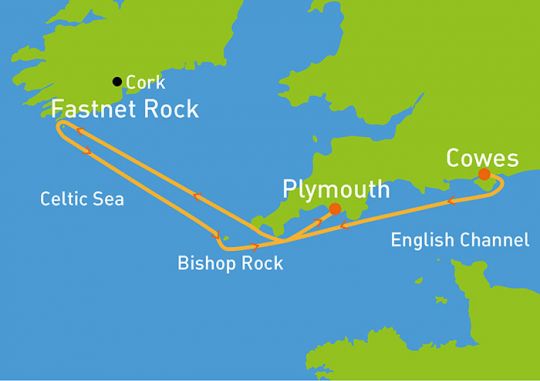
The Fastnet, a crewed race open to IRC-rated monohulls, multihulls and other open boats, is run every year in August. At the Royal Squadron's cannon shot, the very many sailors leave the Isle of Wight, head east, round the rock by its East and return to Plymouth. The first half of the race is often windward, with the tides and currents at the same time: very technical. The second half is fast and aggressive downwind, which is exhausting both men and machines. It takes less than two days for the fastest trimarans and more than a week for some small boats. Open to all, it is a popular race, in the noble sense of the word, everyone has a chance, as long as they have the boat and the crew.
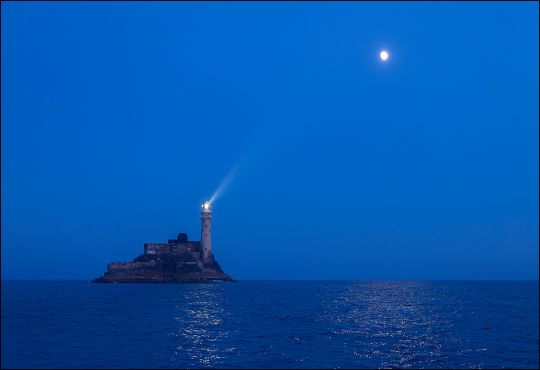
A race against the clock and against the currents in the English Channel
In August, the situation is anticyclonic, with consequent tidal ranges on the south coast of Her Gracious Majesty's Island. However, beware, a calm sea and a calm wind never mean good weather in this area haunted by shallows. The reversal often causes a change in the weather. And it takes place every six hours in the English Channel.
A dramatic 1979 edition
It is a race that has seen its glories and its setbacks, the worst being the 1979 edition. Of the three hundred and three boats on the starting line, only eighty-five will reach Plymouth. Twenty-four retirements, five shipwrecks. The wind passed the 55-60 knot mark and waves of 10 to 11 metres. Fifteen dead... This edition will be remembered as the deadliest of all the races on the water.
Race with a French tendency
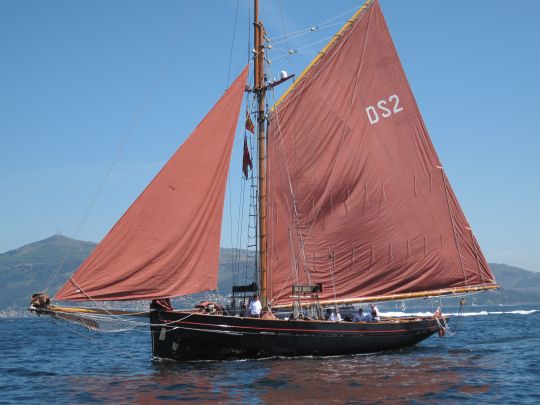
With the humour and tact that we know, the story has given a very French accent to this So-British race. Certainly, a majority (13) of the winners are or were subjects of Her Gracious Majesty. The first of the 28 editions of this race was won by Sidney Briggs, at the helm of Jolie Brise, a sailing cutter built in Le Havre in 1913. In a sense, therefore, the first victory of this legendary race was French. The following French victories, Tabarly in 1967, Chabaud in 1999, Peyron in 2011, Guichard in 2013 and Cammas in 2015 put the French sailors in second place in terms of number of victories. Finally, our tricolour sailors are at the top of the record books for this race. Since 4th August 2019, it's the Ultime Maxi Edmond de Rothschild (Gitana 17), co-skippered by Franck Cammas and Charles Caudrelier, in 1 d 4 h 2 min 26 s which holds the speed record.
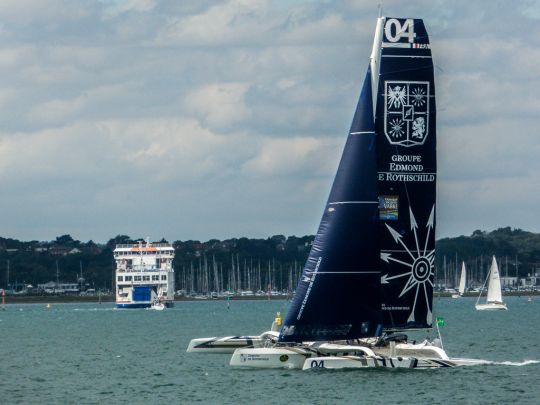
From seven competitors in 1925 to 400 in 2021
The first edition in 1925 will see 7 competitors take to the Fastnet on August 15 of that same year. Won by Sydney Briggs in 6 d 14 h 45 min, a little over 347 hours. The next edition scheduled for 2021 will be revolutionary. No more arriving in Plymouth. It is the coasts of France that will be targeted, with an arrival in Cherbourg harbour for the 3,000 participants on board 400 boats. Other times, other places, but certainly not another race!
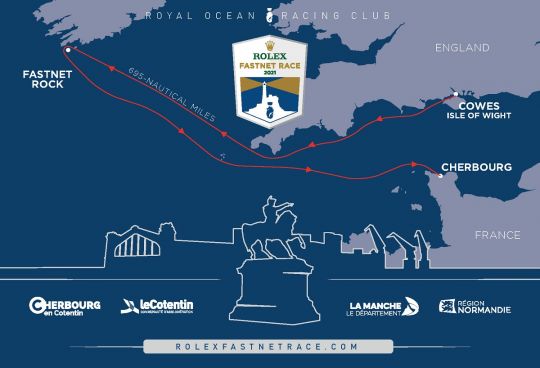
Although he has never participated in this regatta, we talked about this race with Jean-Luc Van den Heede (the famous VDH). He has frequently come across this mythical lighthouse. Notably in 2005, alone, on Adrien by setting the record for the round the British Isles in 7 days, 8 hours and 47 minutes.
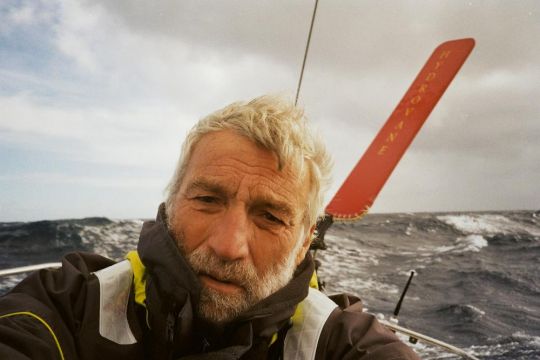
VDH is therefore used to the place and gives us its impressions.
The Fastnet as seen by VDH
Let's take a look at the image that the regatta navigator has of this competition" It's a pretty long regatta ", he begins, " It has been copied by many others. It had an extraordinary reputation in the 1970s. You had to have done the Fastnet to be in the club. I, for one, did not own the right boat at all. It was necessary to have a boat that was up to standard, which was not my concern at the time ". The teacher that Jean-Luc was to add " Then August, for me, it's the holidays, with my family. "
Let's try to understand what characterizes the Fastnet exception. " It was the first big crewed race. The prevailing westerly winds created an extremely technical race. The regatta area has a lot of currents. So you have to play with the English Channel all the time. It's a race of brawlers, who fight from the cannon shot as they cross the finish line, without a pause. "On the boats themselves, he adds." All the very technical boats have been in this race. Some as a christening, others as a laboratory or a running-in. This Fastnet is a Navigator's Holy Grail. "
The way of approaching a race is different in each event, especially when it is mythical like this one. Jean-Luc Van den Heede, the leader of the men, explains: "The way we approach a race is different in each event You have to create and lead a crew. This crew is made up of several roles and responsibilities, cook, several helmsmen, tacticians. The Fastnet, because of its format, requires that the boat be manned at all times. "Major difference, though, is the length of the course. " It's a large-scale regatta on a mythical stretch of water. "The preparation of the boats is also exceptional. " The English consider that if you show up at the start of the race, each skipper participates at his own risk when he takes the start. Few rules, controls or other technical checks, everyone exercises their responsibility, so you can't rely on these controls to reassure yourself, they don't exist. "
